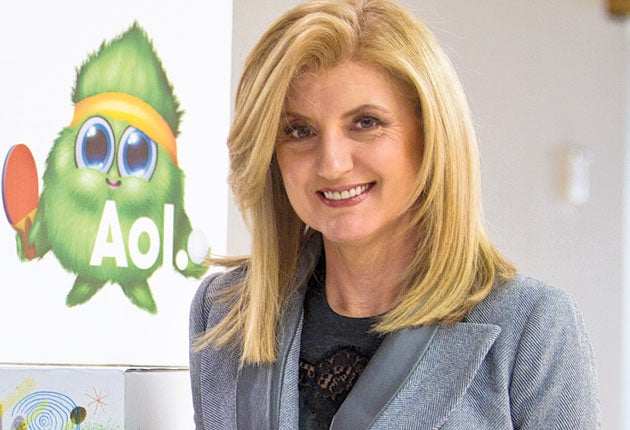Ian Burrell: Huffington tie-up is expensive, but it follows a clear logic

It is becoming a routine ploy for America's ailing but established media giants: reach out for a noisy and fashionable website and try to ride its coat tails back to the good times.
Three months ago Newsweek, that venerable 77-year-old institution, was obliged by its crippling losses and tumbling circulation to sell itself for $1 and cosy up to British-born publisher Tina Brown's two-year-old (but also loss-making) news site The Daily Beast. Yesterday AOL, one of the oldest corporate names associated with the internet and struggling with falling revenues, adopted a similar strategy by aligning itself with The Huffington Post, a favourite online haunt of the American chattering classes.
For the Cambridge-educated co-founder and editor-in-chief, Arianna Huffington, who lends her name to the site, it was a remarkable piece of business. AOL paid $300m in cash plus a further $15m for stock to acquire a website that was set up less than six years ago. But The Huffington Post has assembled such a portfolio of blog contributors, such as Christopher Hitchens and Deepak Chopra, that it has become one of the best-known sources of online content in America.
It is just over 10 years since AOL took part in the disastrous $350bn merger with Time Warner, an arrangement that has come to be regarded as the "worst deal in the history of the internet". This tie-up with The Huffington Post is expensive for AOL (which became an independent company once more in 2009) but follows a clear logic.
News sites are looking beyond the limited appeal of headlines and wire copy. They want personality, and The HuffPost has that in spades. AOL, which traces its roots back to 1985, took the patriotic name America Online in 1991. The HuffPost is unashamedly liberal in its outlook and a deal built on strong brand identity comes with an element of risk. It also comes at a time when rival Yahoo! is preparing to launch its own revamped and personalised news service called Deadeye.
Whether the alliance works or not, the Greek-born Arianna Huffington's stock has undoubtedly risen. Just as Oxford graduate Tina Brown became editor of Newsweek as well as of The Daily Beast, so the former president of the Cambridge Union Society becomes editor-in-chief of all content on The Huffington Post and on AOL.
Join our commenting forum
Join thought-provoking conversations, follow other Independent readers and see their replies
Comments